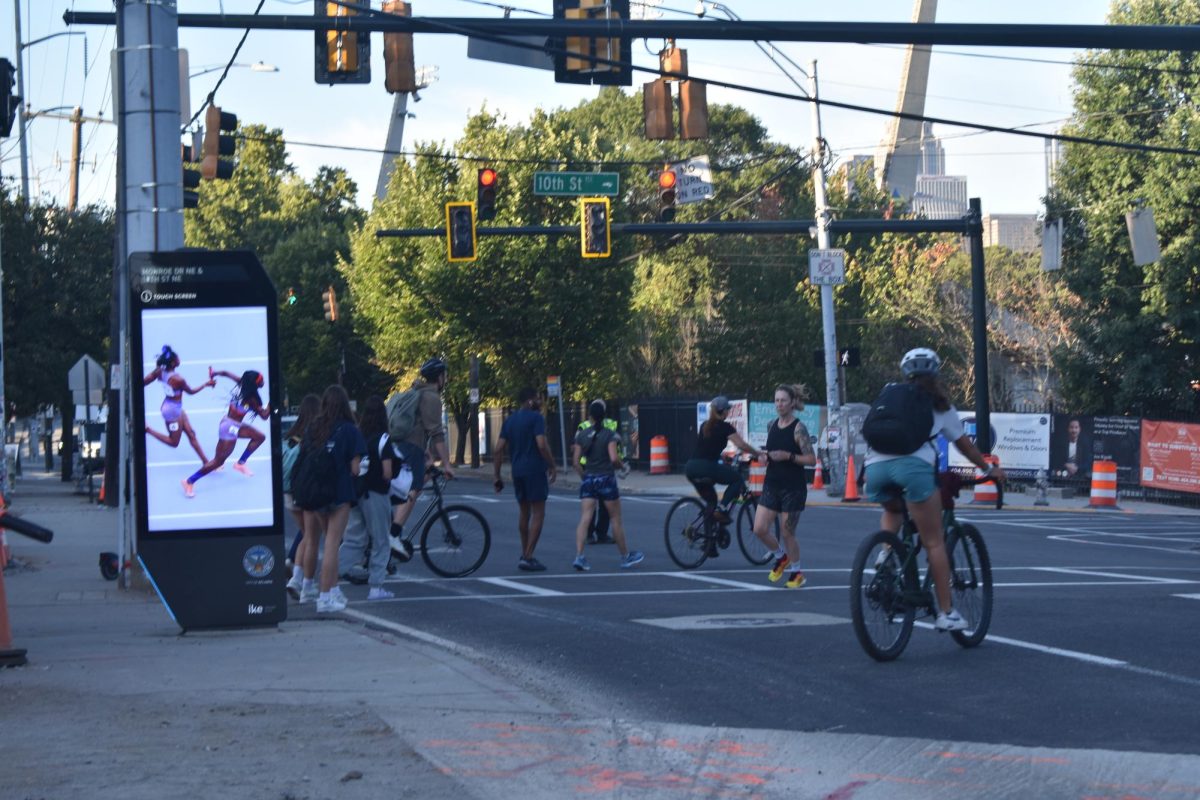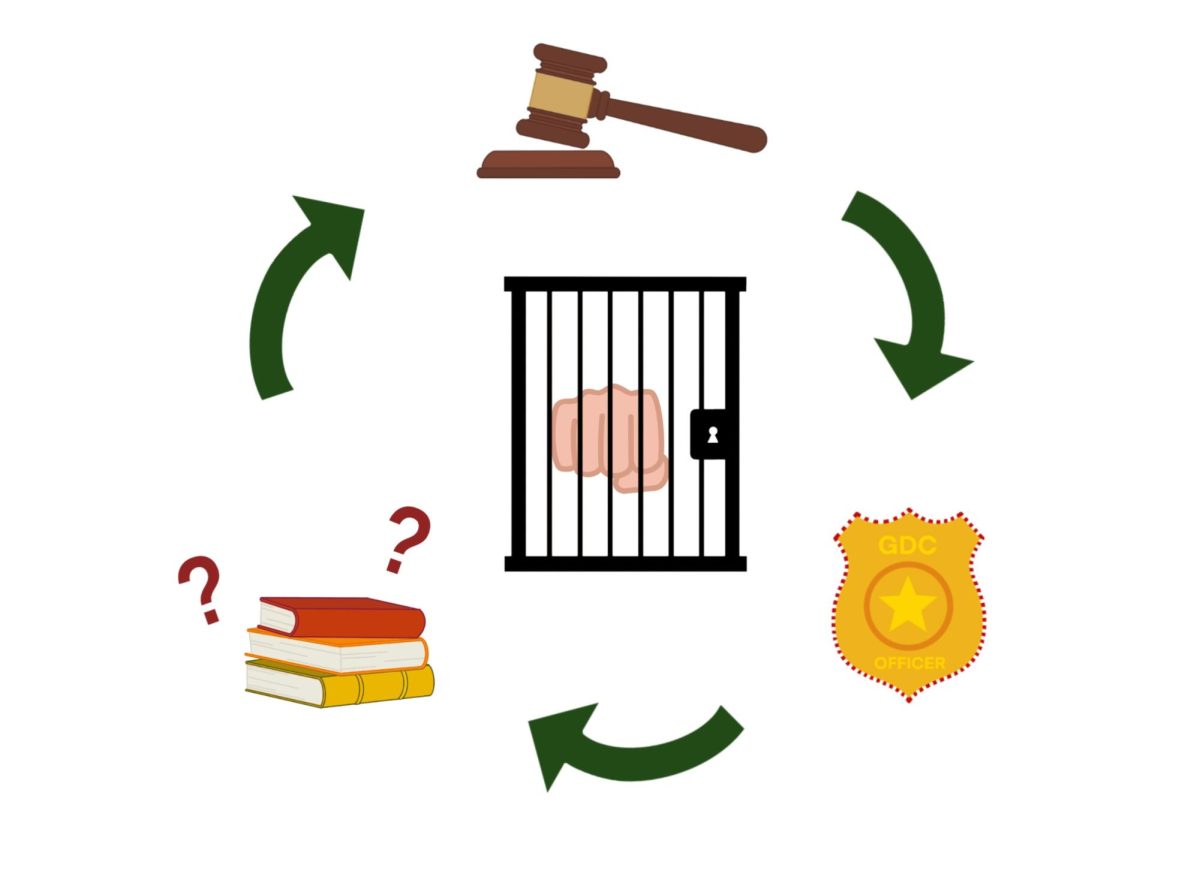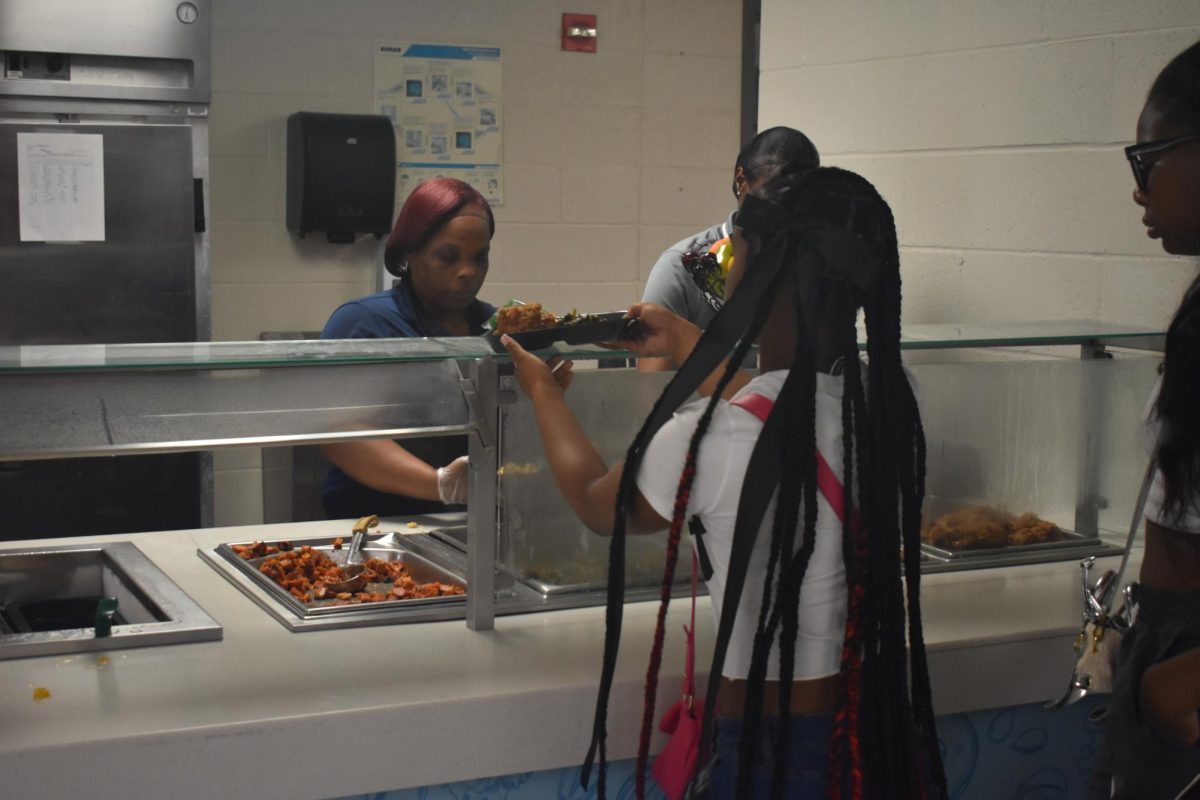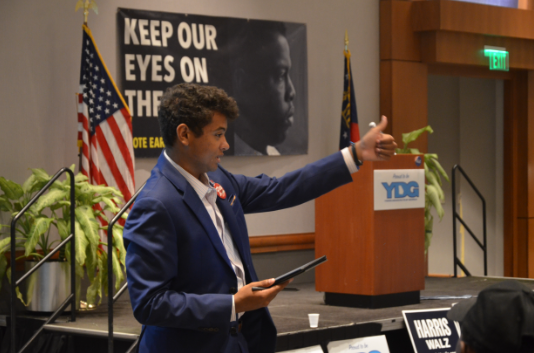Alumnus defies stereotypes, runs to find perfect fit
November 13, 2015
By Mei Nathan
Strutting up Grady’s stairwell, Afro bouncing, Gregory Sheats felt confident beginning eighth grade. It was 1969, and the onslaught of ‘70s culture was emerging.
“It was just kind of a melting pot,” Sheats said. “I recall having friends from all of the different cliques.”

Although Sheats was friends with most of his grade-level classmates, he bonded closely with athletes due to their camaraderie on the field and court.
“From morning to night, I was out playing some sport,” Sheats said. “It was just in [my] blood, so it was an easy transition to participate in sports.”
To Sheats, time revolved around athletics. Football practice defined autumn, basketball games were won in the winter, baseball and track made spring semester memorable. Without realizing how much time had passed, Sheats entered his junior year.
Sheats began Aug. 31,1972 like any other day — stressed about his college preparatory classes and thinking about football practice after school.
At 9:15 a.m. an explosion shook the school. According to Popular Mechanics Magazine’s February 1974 issue, a secretary smelled gas coming from the annex building on 8th Street, and the school notified Atlanta Gas Light Co. of a leaking pipe. Students in the six classrooms closest to the leak were evacuated, leaving Sheats and the remaining 974 students in the main building.
“There was a loud blast and the main building just shook, and we had to be ushered out of the classes to get away from the place for safety reasons,” Sheats said.
Checking the front of the building, Assistant Principal Clifford M. Ashmore was the first to feel the impact of the explosion. Sustaining burns and a broken leg, Ashmore was rushed to Grady Memorial Hospital, according to the Atlanta Journal Late News Edition. The explosion injured six others and killed one. Corine McGhee, oblivious to the leak, was delivering school mail when a flying brick and glass killed her on impact.
“Once we heard that someone had been injured or killed, I [remember] feeling sorry for that person and [his or her] families,” Sheats said.
Following the tragedy, Sheats was sad, yet he doesn’t remember the accident having a prolonged effect on Grady students. Activities resumed and Sheats continued focusing his efforts on sports. By senior year, Sheats was the first African-American quarterback at Grady.
“The consciousness of people was changing and becoming more accepting, and I just happened to have a coach that said, ‘you’re going to be the quarterback,’ without any fear of any negative ramifications,” Sheats said.
Grady integrated in 1962, and while the seven years had brought change, there were small signs of social ignorance in Sheats’s early days at Grady. As an 8th grader, Sheats was interested in taking the mechanical drawing class, but recalls the counselor trying to dissuade him from joining the predominantly-white class.
“As I look back, that could’ve been that [the counselor] wasn’t comfortable with my abilities,” Sheats said, referring to the negative opinions surrounding African-Americans at the time. “It was subtle stuff like that, nothing egregious. Things were changing even from my 8th grade to senior year, all moving in a direction of inclusiveness. I was just happy [the coach] felt I had the ability.”
It was the last game of senior year, and with time running out, the Grady Knights were losing to the North Fulton Bulldogs. In order to win, Grady had to drive the entirety of the field.
“Even though we lost the game, I remember having that sense of how time slows down, and everything seems euphoric,” Sheats said.
When football season ended, Sheats turned his attention toward running. He was naturally-talented, and found running to be meditative and introspective.
“My senior year, I remember being voted the captain [of the track team],” Sheats said.
Since graduating from Grady in 1974, running has defined Sheats’ life. While attending the University of Kentucky, Sheats felt torn between running and political science. Ultimately, Sheats chose to follow his passion, running. With his best time being 1.51, he ran the 800 meters all four years of college, and wanted to test how fast he could go.
Sheats took a job at Phidippides Running Store, located in Ansley Mall, attracted by a flexible work schedule. Despite believing the job was temporary, Sheats has been a loyal employee since March of 1980.
“I think having someone like Greg is a huge asset,” said Wil Cramer, manager of West Stride Running Store. “He’s very good at listening to concerns and talking through problems.”

Phidippides sales associate, Sloan Ware agrees Sheats adds a unique outlook toward fitting shoes.
“With Phidippides, mainly as a result of Greg, the process is a lot more adaptive; we’ll use different shoes and alter shoes just to make the fit more comfortable,” Ware said. “A person will come in, having never met Gregory and then halfway through the process, it’s like they’ve been best friends for years.”
Working less than two miles away from Grady, Sheats has fitted countless students and makes sure to keep his Grady connection strong. After high school friend Randy Reed, the late Grady girls track coach who passed last year, approached Sheats in 1986 about giving the track team a discount on track spikes and running shoes, the Phidippides team has had a long lasting partnership with Grady athletics.
“It just became a routine or tradition that we were going to be looking out for Grady,” Sheats said. “I definitely find it rewarding to contribute the shoes, knowing we were giving Grady stuff that they may have otherwise not been able to get.”
While the faces of Grady students in Phidippides have changed through generations, Sheats said he can always identify the unwavering Grady spirit.
“For me, [Grady] continues to be unique for its geographical location, for that melting pot vibe, and the progressiveness of the curriculum,” Sheats said. “The vibes that are there seem to transfer from one class to the next, from the ‘60s to 2015.”






Aldin (Robert) Lee • Jun 5, 2022 at 7:35 pm
Nice to see this article. I was in school with Greg, but had little interface with him, with not being an athlete myself. I do remember one class with Greg, art class, Ms. Mueller. And, for years afterward I remember thinking really well of Greg, in fact noting that he was the school mate I admired the most, perhaps due to his jock status and yet having a generosity of spirit towards everyone.